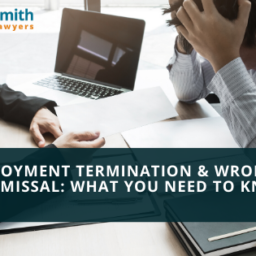What does the law say about mandatory vaccines and EMPLOYEE RIGHTS IN ALBERTA?
Are mandatory vaccination policies in the workplace legal? As more employees return to the workplace, about 62% of Canadian small- and medium-sized businesses are planning to implement or have already implemented a mandatory vaccination policy.
The Government of Alberta has assured the province that COVID-19 vaccination will not be mandatory, yet many employers are considering their obligations and policies in the face of the current pandemic reality. There are indeed legal implications, and both employers and employees need to know their rights.
Can employers require vaccinations for employees in the workplace?
The short answer is “yes”. Employers can legally require vaccinations for employees in the workplace.
As of now, the courts have yet to rule on the right to require vaccinations, so current employment law is what we have to go on. Federal and provincial occupational health and safety legislation requires employers to protect their employees from health and safety risks in the workplace.
The employer’s duty to protect workers and provide a safe workplace exposes them to the potential for a civil suit for negligence. If an employer wants to fulfill this duty, it’s not unreasonable for them to consider mandatory vaccines considering how contagious and dangerous COVID-19 is, especially because vaccines are the most effective way we know of to protect against the virus.
What are the legal considerations for employers & vaccine mandates?
Even though mandatory vaccine policies are legal for employers, there are some additional legal implications.
Safety
Some vaccinated employees are concerned about unvaccinated employees being permitted in the workplace. The concern is for the safety of the vulnerable.
Employers have a legal obligation to keep workers safe. It is recommended that, whether or not employers choose to implement mandatory vaccinations, other safety measures be put in place. Actions considered by some employers include:
- Mandatory masks, hand washing, and physical distancing
- Separate buildings or workspaces for vaccinated and unvaccinated employees
- PPE, testing, limited access, and other requirements for unvaccinated employees
Privacy
The issue of privacy rights is raised with the requirement of employees to disclose proof of their vaccination status. An employer’s request for information from an employee about their vaccine status is not contrary to the Alberta Human Rights Act as long as it doesn’t lead to discrimination. Employers must also ensure that the collection, storage, and use of employees’ personal health information complies with privacy legislation.
The information employers collect from medical testing must be limited to what is necessary to confirm safety and fitness to work, or information that determines the employee is eligible for exemption from mandatory testing or vaccination. Employers must not demand additional information, such as pre-existing conditions, disabilities, or diagnoses.
An important point is that when it comes to matters of the safety and health of people, safety supersedes privacy in a court of law.
Human Rights
Employers do have human rights obligations, though not as broad as commonly believed. For example, employers have a duty to accommodate people with a disability or other protected grounds, such as religious beliefs. So even though it’s legal for employers to mandate vaccinations, they must also provide accommodation to employees who cannot be vaccinated for protected reasons.
Employees who refuse to vaccinate must prove that vaccination is physically harmful for them due to a medical disability (such as an allergy to a vaccine ingredient), or that it is inconsistent with their religion.
Proving medical disability that prevents vaccination requires more than a doctor’s letter and must establish substantial health risk to the employee. The religious exemption goes beyond personal belief and must provide evidence of long-term religious adherence, such as proof of dues.
An employer can accommodate employees that meet the medical and religious exemptions in various ways, such as allowing the employee to work remotely. Whatever accommodation the employer provides, it must be clearly addressed in the mandatory vaccination policy.
What are employee rights regarding workplace vaccine mandates?
Some employees may not want to be vaccinated because of personal beliefs, but not all beliefs are protected under the Alberta Human Rights Act. Legally, an employee only has a right to refuse mandatory vaccination policies because of a medical disability or religion.
Employees do not have a legal right to insist on a work-from-home accommodation because of a refusal to be vaccinated. The location of the workplace is at the sole discretion of the employer.
Employers are legally allowed to dismiss an employee who refuses to comply with a mandatory vaccination policy, as long as that employee does not have a justifiable medical or religious human rights exemption.
What happens when an employee refuses mandatory vaccination?
When an employee refuses mandatory vaccination for any reason other than those protected by human rights, the employer can legally terminate the employee.
This may not be a “just cause” dismissal, however, so the employer must comply with employment law notice of termination requirements. This means the employer must give reasonable notice (as defined in the Employment Standards Code) or pay the full amount the employee has a right to upon termination (such as severance, notice period pay, vacation pay, or final pay).
Legal Advice for Workplace Vaccination Policies
Employers who are considering vaccination policies should seek legal advice. Crafting an effective policy that protects the employer from human rights violations and fulfills safety and privacy obligations can be complex.
The employment lawyers at Osuji & Smith can help you consider all the legal implications of your vaccination policy, understand your obligations to your employees, and implement the policy with confidence. We can also help you clearly communicate the policy and your commitments to your employees.
Also read: What business owners CAN and CAN’t do when it comes to employment rights, the vaccine, and Covid-19
Questions And Answers On Employment Issues Related To Vaccines At The Workplace











